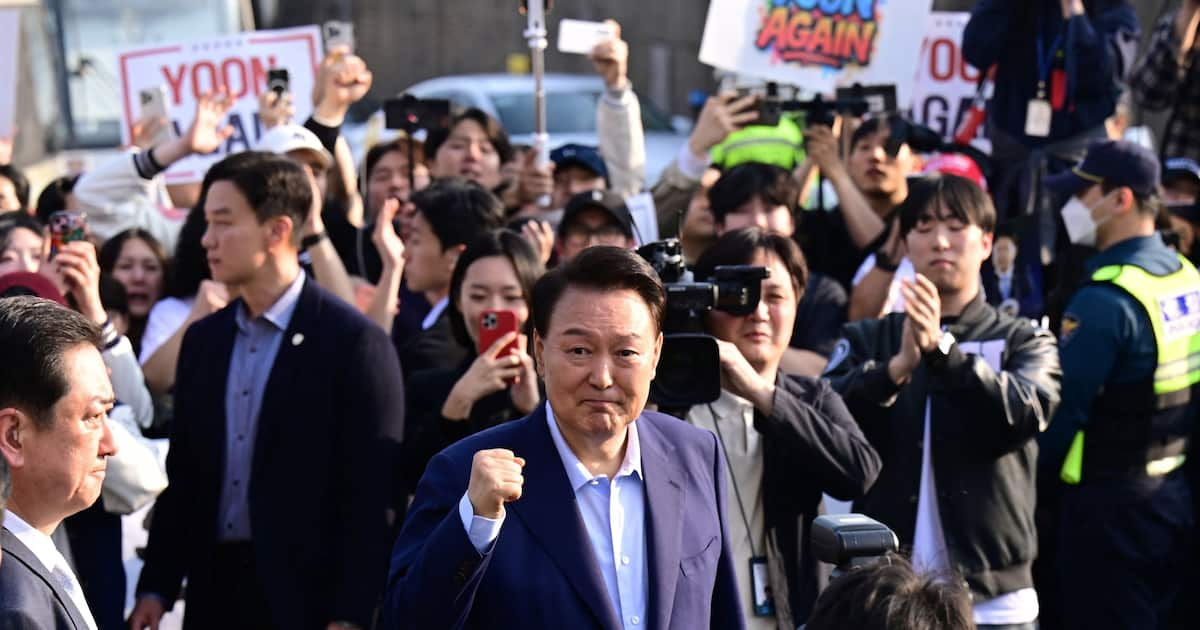South Korea's Conservative Future: Navigating the Post-Yoon Era
South Korea's political landscape is shifting after President Yoon Suk-yeol's term, leaving the conservative movement at a crucial juncture. The question now isn't just about who will lead the party, but what direction Korean conservatism will take in the years to come. This article explores the challenges and opportunities facing South Korea's conservatives as they navigate this post-Yoon era.
The Yoon Presidency: A Mixed Legacy
Yoon Suk-yeol's presidency, while marked by conservative policies, faced significant public disapproval and internal party divisions. His administration's focus on strengthening national security, particularly regarding North Korea, resonated with many, yet his handling of economic issues and social divisions proved controversial. This legacy casts a long shadow on the future of the conservative movement.
Key Challenges Faced by the Yoon Administration:
- Low Approval Ratings: Persistent low approval ratings hampered Yoon's ability to implement his agenda effectively and damaged the conservative party's image.
- Internal Party Divisions: Deep rifts within the ruling People Power Party (PPP) hampered policy coherence and weakened the party's overall standing.
- Economic Concerns: Rising inflation and economic anxieties fueled public discontent and impacted the popularity of the government's economic policies.
- Strained Relations with Key Allies: Challenges in managing relationships with both the United States and China also contributed to the government’s difficulties.
The Path Forward: Redefining Korean Conservatism
The future of South Korea's conservative movement depends on its ability to address the shortcomings of the Yoon administration and reconnect with the electorate. This requires a multifaceted approach:
Rebuilding Public Trust:
- Addressing Economic Concerns: Conservatives need to present credible economic plans that address the concerns of ordinary citizens, focusing on job creation and improved living standards.
- Promoting Social Inclusion: A more inclusive approach that considers the needs of diverse groups within society is crucial to broaden the party's appeal.
- Improved Communication: More transparent and effective communication strategies are needed to build public trust and address criticisms.
Internal Party Reform:
- Promoting Unity: Healing internal divisions and fostering collaboration among different factions within the PPP is paramount.
- Modernizing the Party Platform: Adapting the party's platform to address contemporary issues and reflect evolving societal values is essential to remain relevant.
- Investing in Young Leadership: Promoting fresh faces and perspectives will attract younger voters and revitalize the party's image.
Potential Successors and Future Directions
Several figures are vying for influence within the conservative movement, each with their own vision for the future. Their platforms and approaches will ultimately shape the direction of Korean conservatism. Analyzing their policy positions and public support is crucial for understanding the evolving dynamics.
(This section would ideally include detailed profiles of key potential leaders within the conservative movement, their policy stances, and their strengths and weaknesses. For the sake of brevity, this is omitted here.)
Conclusion: A Crossroads for Korean Conservatism
The post-Yoon era presents a significant opportunity for South Korea's conservative movement to redefine itself and regain public trust. Successfully addressing the shortcomings of the previous administration, promoting internal unity, and engaging with the evolving concerns of the electorate will be crucial for the future success of the conservative party. The coming years will determine whether Korean conservatism can successfully adapt and thrive in a changing political landscape.
Keywords: South Korea, Korean politics, conservative party, Yoon Suk-yeol, post-Yoon era, People Power Party (PPP), election, political analysis, economic policy, social policy, North Korea, US-South Korea relations, China-South Korea relations.
Call to Action: What are your thoughts on the future of South Korea's conservative movement? Share your insights in the comments section below!
